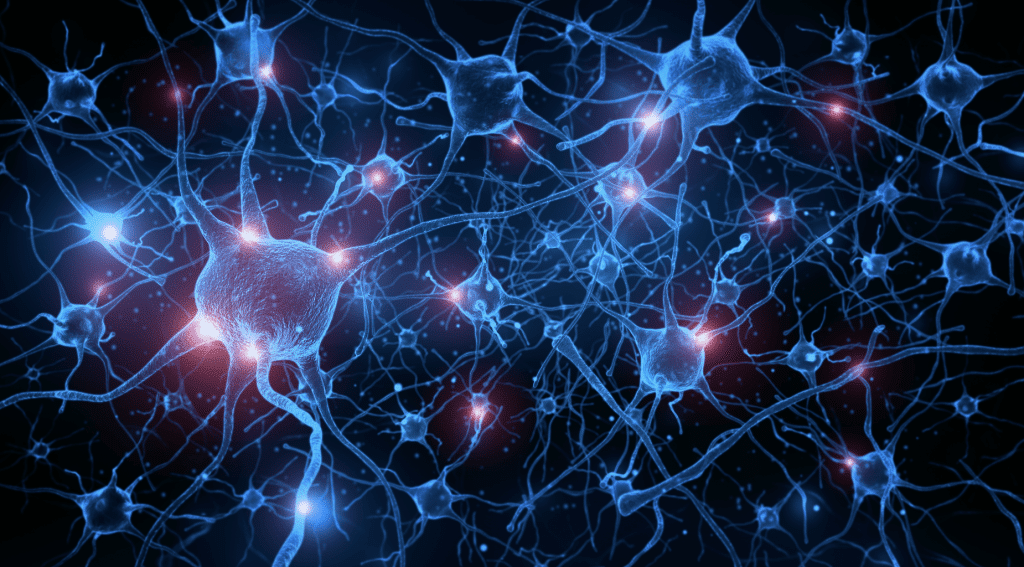Long Term Effects of Alcohol On The Brain – What You Need To Know

Alcohol is historically a huge influence on the American social scene. For this reason, you see it pretty much at every party, restaurant, and big event. Advertisements for alcohol caution that it should be enjoyed responsibly, but as we know all too well, things can take a turn for the worse almost too easily.
The short-term effects of alcohol on the brain are very well-known:
- Cognitive changes
- Delayed reaction time
- Sleepiness
- Slurred speech
These are just a few.
Although the long-term effects of alcohol have been researched for years, very few people have interest in these studies. However, scientists have exposed the dangerous long term effects of alcohol on the brain. Heavy long-term drinking can even cause permanent brain damage in extreme cases, making it very dangerous.
The effects may take longer to take hold, but the long-term effects of alcohol on the brain can cause numerous health problems and dangers. Here are just a few you should be aware of, and how you can find treatment if you or your loved one shows symptoms.
Blackouts
Large amounts of alcohol for either short or long periods can have lasting effects on the brain. Binge drinking, or drinking large amounts of alcohol too much and too quickly, can cause blackouts and lapses in memory. This can happen even after just a few drinks, and especially when one drinks copious amounts of alcohol on an empty stomach.
A blackout is when a person cannot remember details of an event (or even an entire event) after drinking. Blackouts are a dangerous consequence of binge drinking that can have lasting effects for everyone involved. Frequent blackouts from alcohol can cause long-lasting effects on the brain. Those who drink regularly to the point of blacking out are more likely to experience general memory loss even when not drinking or intoxicated.
People who have blackouts are also more likely to physically injure themselves or others, which also causes long-term effects on everyone involved. Car crashes involving alcohol account for 28% of all traffic-related deaths in the United States.
A person experiencing a blackout can also get in fights that can cause themselves and others injury; alcohol tends to emphasize emotions and give people tunnel vision. People who blackout tend to not realize the consequences of their actions, and it is very unlikely that they will remember that the event happened the next day.
Although blackouts seem like a temporary inconvenience that results from alcohol use, they can lead to much bigger problems. People who blackout are at extreme risk of:
- Falling and suffering a head injury
- Choking on vomit
- Experiencing seizures
- Extensive memory problems
Diminished Gray Matter in the Brain
Substance abuse of any kind can have a detrimental effect on the body. In regard to alcohol, it significantly affects the tissues in the brain. Research suggests that gray matter in the brain reduces due to high amounts of alcohol.
Alcohol-dependent patients were studied and scanned within 24 hours of detoxification and abstinence; tissue volume was observed to be smaller in alcohol-dependent patients than in the non-alcohol-alcohol-dependent patients. This shows that alcohol use makes gray matter in the brain shrink over time.
The brain is about 40% gray matter. This is the part of the brain that is essential for attention, memory, and thought. It contains neurons that also deal with motor control and coordination, which explains why long-term alcohol abuse is characterized by loss of memory and attention deficits. Studies in college-age young adults show that heavy alcohol use results in accelerated grey matter volume.
It is a common misconception that drinking excessively “kills brain cells”; this is not true. However, excessive drinking does damage neurons, which can make it difficult for them to relay messages to one another.
This is why brain matter is so essential for functioning. This tissue contains these precious neurons that need to relay important messages. Just because it doesn’t “kill” brain cells doesn’t mean it’s any less damaging to the brain.
It is possible to save these tissues in the brain by reducing or stopping alcohol use and abuse. The same studies that show the tissue decreases with the use of alcohol proved that when those same patients were detoxified, the tissues tended to regenerate. This shows that recovery is possible with the right treatment.
Attention Span and Concentration
Binge drinking, heavy drinking, and long-term drinking have a big effect on attention span and work performance. Doctors can tell if you have been drinking excessively by testing your blood alcohol concentration.
Attention deficits have been exhibited in patients who drink excessive alcohol more than once a week. Compromises memory processing has also been reported in adults 25 years of age and younger, which can lead to trouble in school and work. These may not be as severe as permanent brain damage, but they can still have lasting effects on a person’s mental health.
Further, adults who participate in excessive drinking regularly frequently experience “hangovers” or symptoms that result from drinking alcohol. Symptoms of hangovers include:
- Headaches
- Light sensitivity
- Nausea
- Dizziness
Hangovers cause poor performance and conflict at work and school, which have consequences that can vary from poor mental health to verbal reprimand, termination, or expulsion.
Alcohol and the Developing Brain
Drinking alcohol while pregnant can result in a baby having severe physical, learning, and behavioral issues. These issues are most commonly known as Fetal Alcohol Syndrome (FAS), and children who have this syndrome have fewer neurons that can function correctly, which can result in learning and behavioral issues:
- Complex motor skills
- Learning disorders
- Attention deficits
- Poor problem-solving skills
These are all issues that may arise from a mother drinking or abusing alcohol while pregnant.
Although researchers have carried out studies to alleviate and eliminate these issues in rats, the best way to prevent FAS from occurring is to not drink while pregnant. Those with a history of alcohol abuse should reach out for professional assistance if this proves to be difficult.
Long-Term Damage from Short-Term Effects
Although long-term brain damage is thought to be the most severe effect of alcohol consumption, other damages may result from the short-term effects of alcohol consumption. It is well-known that intoxicated individuals exhibit a loss of fine motor skills, poor coordination, slurred speech, loss of balance, and aggression. These short-term effects that are typically gone the next day may have lasting consequences for everyone involved with the intoxicated individual.
Drunk driving is one of those short-term decisions that can have lasting effects. On a federal level, the maximum blood alcohol concentration to be able to drive is 0.08%. However, in the year 2014, 31% of all driving fatalities were alcohol-related.
The fatalities aren’t the only statistics that matter: Permanent brain damage and loss of life is an unfortunate but true consequence of driving under the influence of alcohol. A drunk driver can easily reach the 0.08% at different points during a drinking episode, so it can be difficult to know when a drinker has reached that legal limit. That being said, consuming any amount of alcohol before driving is a dangerous decision that can result in lifelong consequences for everyone involved.
Slips and falls due to poor coordination and balance from being under the influence of alcohol after heavy drinking can result in long-term consequences of drinking. Brain damage is completely possible from a bad fall. Although the dizziness from heavy drinking is temporary, its effects can be lasting.
It’s important to note that aggression is a lesser-known but valid concern when discussing the long-term effects of heavy drinking. This is for two reasons:
- The drunken individual or the object of their aggression can suffer from permanent injuries from a fight
- Drinking can reveal concerning and even disturbing internalized aggression in a person who is usually calm and collected.
Alcohol emphasizes emotions; if a person who is usually not aggressive starts a fight, it can be a sign that the alcohol brings out their “true form.”
Reaching out to a professional for help is a good first step in finding ways to express this aggression in healthy, helpful ways.
Wernicke-Korsakoff Syndrome
Wernicke-Korsakoff Syndrome is a neurological disorder that is caused by a deficiency of Vitamin B1. Symptoms develop in two stages: the Wernicke stage and the Korsakoff stage.
In the first stage, symptoms include confusion and disorientation over a few days or weeks. This may at first be confused for brain damage, but these symptoms eventually lessen.
After this, lethargy, drowsiness, and indifference may occur. In extreme cases, delirium can develop; if left untreated, affected patients can experience loss of consciousness.
From there, the second stage begins. This stage is characterized primarily by memory loss and impairment.
Most cases of this syndrome in the United States occur due to excessive alcohol consumption. This is because heavy drinking reduces the body’s ability to absorb the vitamin. It diminishes stores of the vitamin in the liver. Treatment for Wernicke-Korsakoff Syndrome includes the administration of Vitamin B1 and abstinence from alcohol if recommended by a physician or doctor.
Chronic alcohol abuse can make this syndrome worse and even cause levels of brain damage. The most serious cases have resulted in:
- Severe brain damage
- Memory issues
- Cognitive issues
However, it has been proven that if the disorder is caught and treated early, treatment can make progress to recovery.
Addiction
Addiction to alcohol is an unfortunately common consequence of alcohol abuse that isn’t considered “brain damage.” Typically known as “alcoholism” or “chronic alcohol abuse,” it is marked by cravings for alcohol and heavy drinking with an inability to stop. This can cause extreme personal and social harm.
Addiction is possible with almost any substance use or substance abuse situation but is especially dangerous for alcohol. Since alcohol is legal (unlike many other drugs and substances), it makes it that much harder for alcohol use to be regulated, especially for those addicted to it.
Other Alcohol-Induced Disorders
Alcohol is a depressant to the central nervous system. However, under certain circumstances and depending on the person, heavy drinking can either excite or sedate some users.
Excitement can be due to alcohol suppressing inhibitory parts of the brain, which can make the user feel invincible and powerful. Sedating effects can make the person sleepy, sad, and depressed. Therefore, alcohol should be seen as a danger to mental health.
Moderate drinking can be detrimental to a person’s mental health, even if not consumed regularly or heavily. As said before, alcohol can reduce the brain volume of tissues, which can make neurons unable to communicate with each other. This can result in a feeling of sluggishness or lethargy, which also leads to more severe disorders. Although moderate drinking is normalized in society, every person is responsible for self-monitoring to avoid severe drinking habits.
Alcohol-induced psychiatric syndromes can be induced by alcohol abuse, such as:
- Alcohol-induced depression
- Bipolar disorder
- Sleep disorder
- Psychotic disorder
These are usually temporary and go away after the body processes and removes the alcohol from the system, but in some individuals, it has persisted and caused major depression and anxiety disorders.
Other issues involving the brain and central nervous system have been linked to alcohol use and abuse, such as substance use and abuse. Users may develop a tolerance to alcohol and turn to other substances (drugs such as heroin, ecstasy, MDMA, and others) to receive that same “good feeling” that they’ve lost from alcohol. It’s important to not let it get this far and reach out to a healthcare professional if the abuse has gotten this far.
Why Should You Seek Professional Help?
If you’re concerned with your use of alcohol, you’re not alone. Over 14 million adults in the United States suffer from some form of alcohol abuse disorder. However, less than 9% received any form of treatment. For this reason, most people with an alcohol abuse disorder feel that they have no options or are a lost cause.
Alcohol abuse does not happen suddenly, and it is not a quiet or hidden disorder; there are many signs and symptoms that point to alcohol abuse. Signs that it is time to seek treatment include:
- Drinking more than intended
- Memory brownouts and blackouts
- Strong urges to drink
- Tolerance (needing more alcohol to get the same effect)
- Irritability or restlessness when not under the influence of alcohol
If you recognize any of these symptoms in yourself or anyone else, it may be time to seek help from a healthcare professional. It may seem shameful to ask for help because you think you can stop drinking whenever you want to, but asking for help is a necessary step in the recovery process. You can’t start your recovery until you admit that you need to recover.
There are several forms of treatment for alcohol abuse, and they can all help develop skills needed to stop or reduce drinking:
- Behavioral treatments such as counseling or cognitive behavioral therapy help patients change their way of thinking and their relationship with alcohol.
- Medications help the body work through addiction while the individual works on their recovery without the risk of cravings.
- Mutual support groups such as Alcoholics Anonymous connect individuals to groups for during their recovery journey. Everyone helps each other cope with triggers that cause a relapse.
Regardless of the origin of the drinking problem, there is no shame in seeking professional help for an alcohol abuse problem. Personalized programs are even possible since each case is unique and should be approached as such.
Always remember that it is imperative that you feel respected and understood when seeking help for alcohol abuse. Rehabilitation is possible, and support groups can help you maintain sobriety and continue on your recovery path for years to come.
If you’re struggling with alcohol addiction or have a loved one in danger, seek support immediately. At the Master Center, we’re happy to help you or your loved one through this time of need.
Conclusion
Alcohol abuse will never be a simple matter. It can be thought of as a spectrum: for some, alcohol consumption can seem like a temporary escape to feeling good before coming back to earth. For others, alcohol consumption is a solution to a problem that nothing else can fix.
Each person is unique. If you’re one of those who believes that there is no other solution than alcohol, you need to know that you are not alone and there is help out there for you. All you need to do is simply reach out to those who are willing to help you through it. No matter where alcohol abuse has taken you, recovery is possible with help. To learn more about resources for alcohol addiction and abuse, or if you would like to take the first steps to stop drinking, contact one of our experts at the Master Center. We will treat your specific condition and provide the support you need, so you can get back to feeling in control of your life.
Resources:
NIAAA: Treatment for Alcohol Problems: Finding and Getting Help
NIAAA: Alcohol Facts & Statistics
NORD
Alcohol and Human Aggression
US National Library of Medicine, National Institutes of Health
Wiley Online Library
CDC: Impaired Driving: Get the Facts


